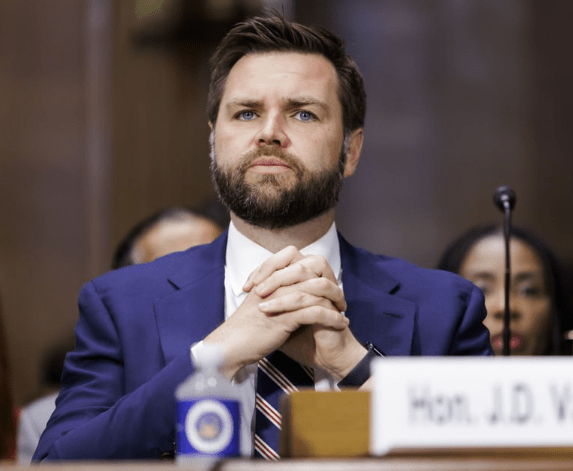JD Vance hails Trump’s ‘energetic diplomacy’ in Ukraine war talks, but Russia dampens hopes of peace
Vice President JD Vance is promising that Donald Trump’s relentless brand of “energetic diplomacy” will bring an end to the grinding war in Ukraine. Yet, as Vance spoke with optimism, Moscow was quietly lowering expectations.
Vance sounds upbeat, even confident
Speaking in a pre-recorded interview on NBC’s Meet the Press, Vance claimed both Kyiv and Moscow had shown signs of flexibility.
“This is the energetic diplomacy that’s going to bring this war to a close,” Vance said. “We sometimes feel like we’ve made great progress with the Russians, and sometimes, as the president has said, he’s been very frustrated with the Russians. We’re going to keep on doing what we have to do to bring this thing to a close.”
The Vice President went further, stressing that President Vladimir Putin had, for the first time in years, made “significant concessions” during his meeting with Trump in Anchorage earlier this month.
“They’ve actually been willing to be flexible on some of their core demands. They’ve talked about what would be necessary to end the war,” he insisted.
Russia throws cold water on the idea
The enthusiasm was not echoed by Russia’s Foreign Minister Sergey Lavrov, who appeared on the same programme. His words were blunt.
“Putin is ready to meet with Zelenskyy when the agenda is ready for a summit, and this agenda is not ready at all,” Lavrov said.
That single sentence appeared to unravel much of the progress hailed by US officials. Washington had suggested that Putin’s willingness to discuss security guarantees for Ukraine — and even a possible Putin-Zelensky meeting — were breakthroughs. Yet both now look fragile, if not entirely off the table.
A missile strike shifts the mood
The tension deepened after a Russian strike on a factory in Mukachevo, western Ukraine, injured at least 15 people. The site was partly US-owned. Trump reportedly told Putin he was “not happy” about the attack.
Meanwhile, Lavrov doubled down on Moscow’s position, criticising President Zelensky for refusing to accept conditions tied to NATO membership and territorial disputes.
“It was very clear to everybody that there are several principles which Washington believes must be accepted, including no NATO membership, including the discussion of territorial issues, and Zelensky said no to everything,” Lavrov argued.
“He even said no to, as I said, to canceling legislation prohibiting the Russian language. How can we meet with a person who is pretending to be a leader?”
Europe’s early hope looks shaky
Only last week, European leaders left the White House praising Trump for facilitating the prospect of direct talks between Kyiv and Moscow. That optimism now feels premature.
Russia’s acknowledgement that Ukraine could secure guarantees with Western nations had been seen as a step forward. But the Kremlin swiftly shot down any suggestion of NATO troops operating on Ukrainian soil.
Even the Trump administration has quietly admitted there will be no deployment of American forces if Russia strikes again.
The reality behind the rhetoric
For JD Vance, the pitch is clear: under Trump’s watch, diplomacy has teeth. But with Moscow unwilling to commit, and Kyiv refusing to bow on NATO or sovereignty, peace remains elusive.
In the end, it may be less about energetic diplomacy and more about whether any side is truly prepared to compromise.






